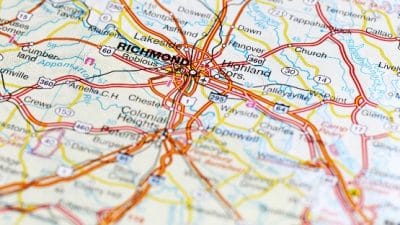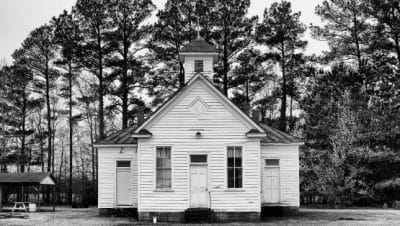Story by Chris Graham
Taxpayers in Waynesboro, Staunton and communities across the Commonwealth undergoing property-value reassessments this year are feeling more than a pinch.
With assessed values going up almost exponentially in many localities, it’s starting to look like open season on government officials – and it could be expected that the impact will be felt on Virginia Senate primaries in several key districts, including the 24th, where conservative challenger Scott Sayre is highlighting tax and spending issues in his bid to unseat incumbent Republican moderate-conservative Emmett Hanger.
We asked Sayre and Hanger to share their views on the local tax issues and how they could impact the June 12 primary in interviews for this week’s “New Dominion” Internet radio podcast.
Scott Sayre
“My opponent says he raised our taxes at the state level so that we would feel relief at the local level. You mention 30-some percent increase there in Waynesboro – it’s the same 30-some percent increase in Staunton. And go over to Albemarle County, Greene County – these people are having taxpayer revolts, because you raise your tax at the state level with the idea of getting relief at the local level. And I ask them, Do you feel the relief? Of course not.”
“The plan they have is a scheme just to support more tax increases, more government, more spending – and it’s got to be reined in. And that’s what I can do – I can rein in this spending with a businessman’s approach to the budget.”
“I’m sitting here filling out a survey – I’ve got tons of them from all these different news organizations. The Staunton News Leader wants me – their question says something like, Candidates sometimes sign a no-new-tax pledge. Both candidates have business backgrounds. In your respective business, will you take a similar no-price-increase pledge? Are such pledges a responsible approach in governing? Well, you know what – we have forgotten the other side of taxes – and that’s spending. Spending and taxes go hand in hand. You know what – in my business, the fact is that for years I don’t raise prices. And when I do raise prices, it’s because my cost of goods have gone up, and I raise them accordingly, or I’m going to give you a better product. But doubling a price? Well, you know what, I don’t think my newspaper has doubled in that short number of years. So I’m going to go back to the Staunton News Leader and challenge them on that. Then I’m going to go back and say this – has your government got twice as good? Is our education twice as good as it was 10 years ago? What about Truck Route 81 – is it twice as good to drive on? Do you feel twice as safe in your own home when you’re looking at your illegal-immigration issue?”
“I can hold taxes – when you take a look, and you go back 10 years, and you add the cost-of-living increase per annum, and you add our population increase, and you get a 3.6 percent per year increase. That means today, in 2007 dollars, we should have a $24 billion budget – instead we’re staring at a $35 billion budget.”
“Where is that ten, eleven billion dollars going? Well, it’s going to just wasteful spending. And anytime you divert your funds that you have that you should be spending to completely fund core priorities, and instead start funding the nice-to-have things, that’s wasteful spending.”
“Career politicians have never used that word – consumers. They have failed to realize that we actually are more than customers – we are suppliers into that channel. And as a businessman, you know what I’m going to do – I’m going to go around, and I’m going to stimulate business. The first tenet of the Republican Creed is about free enterprise. You need somebody in office who has built a business, sustained a business, met a payroll for many years, paid the taxes, and knows how to stimulate business.”
“Take for example my business – my wife and I in our garage, you know, and from that to over a hundred employees. Does that stimulate your economy? You bet it does. Now, what stifles my business is these constant increases in fees and regulations. Let’s remove some of those, get back out there, let us make more money – that is where your relief is going to be felt down the road. The real relief comes from when your businesses prosper.”
Emmett Hanger
“It’s a shared responsibility between the state and local government – and actually, that’s one of the strengths of what I have worked on in terms of my proposals for tax reform from four years ago, in that I felt very strongly, and still do, and am still working on that, that the fairer tax, the better way to raise money to support required services, is through consumption taxes, sales tax and income tax, rather than property taxes. Property taxes have become antiquated – and areas such as ours are at a tremendous disadvantage, and this creates disparities if we put too much reliance on the property tax when the state doesn’t meet its responsibilities.”
“That was really one of the strengths of what I had proposed four years ago – which I’m being called to task on right now by people taking things out of context. But if you look at the full package, I have proposals there that would have capped the ability of the rate of the real-estate tax to grow. I’ve also this past year introduced what’s referred to as a homestead exemption. And I’m looking for various ways of dealing with the fact that when market values increase significantly, then the resulting property taxes may go up in a way that makes middle- or lower-income individuals or individuals on fixed income unable to meet their tax obligations.”
“Having said that, in my opinion, it’s better for us to meet our commitments at the state level, and then at the local level let the voters or the citizens at the local level engage – because there’s where you can make a difference. And people should – they should do it in a civil manner. Obviously, I’m hearing some things now where people are enjoying just being mad at the world and mad at everything – so it’s easy to get mad at paying taxes. Because obviously even though they’re necessary to provide core services – if we’re going to have a civilization, and going to have an economy and education and be prosperous – the recourse to that obviously is to become a Third World country and not have any taxes, but also not have any opportunities for quality of life.”
“It’s actually good for citizens to be able to engage their local elected body and collectively make decisions about what their priorities are. I think that’s a good thing rather than a bad thing. It’s actually a good thing that people’s values are more and that they feel good about that.”
“There’s a tendency to spend to the limit of the amount of money that you have. So when interest rates went low, people discovered that they could leverage a mortgage twice as much as they could have otherwise. So instead of building modest houses, they built houses twice as big as they would have needed. Smaller families, and larger houses. When the price of gas leveled off six or seven years ago, people started buying gas-guzzlers again – just letting the good times roll. And now they’re confronted with not being able to deal with the package of taxes, energy costs for transportation, and energy costs for keeping their house warm in the winter and cool in the summer.”
“So we have to make adjustments. And state and local government are no different. We have to make those adjustments and live within the means of what the people feel is comfortable and not really excessive.”










